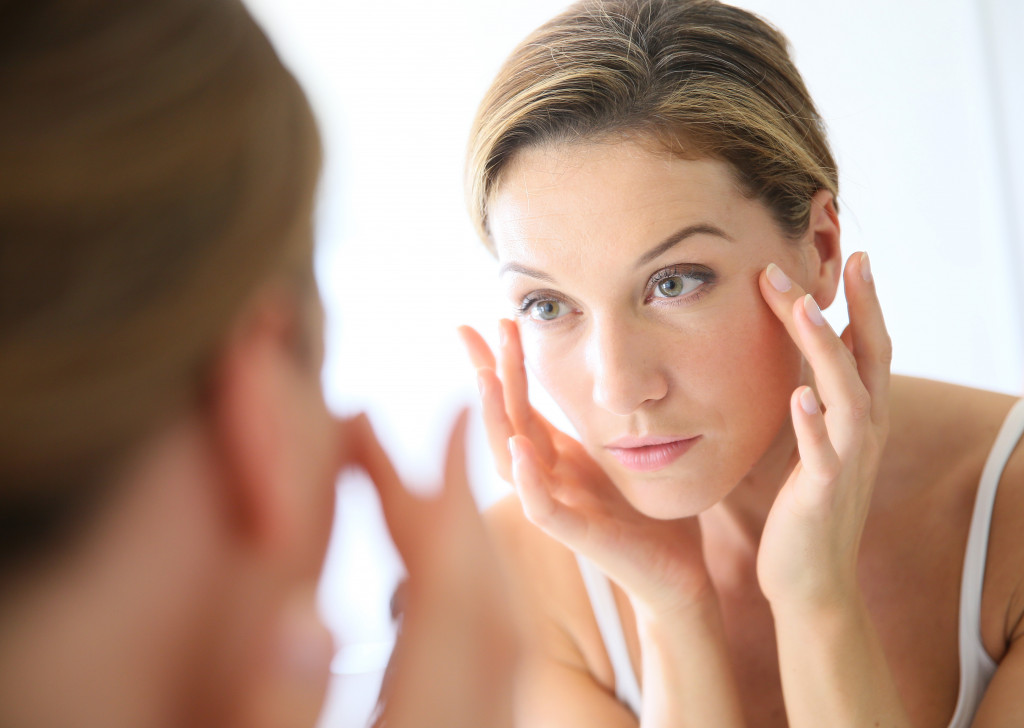- Exposure to UV radiation from the sun can increase the risk of skin cancer.
- Too much sun exposure can lead to wrinkles, fine lines, age spots, and sagging skin.
- Sunburns can also occur due to unprotected sun exposure and may lead to skin damage and an increased risk of skin cancer.
- To protect your eyes, always wear sunglasses with UV protection and a wide-brimmed hat.
- To keep your skin hydrated, drink plenty of water, use a proper moisturizing lotion, and avoid long periods of sun exposure.
We all love spending time outside on a sunny day, feeling the warmth of the sun on our skin. However, our love for the sun can sometimes get the best of us. Too much sun exposure can cause severe damage to our skin, leading to premature aging, sunburns, and even skin cancer. In this blog, you will learn things you should know about how too much sun exposure can affect your beauty, so you can take care of your skin and stay radiant for years to come.
Increased Risk of Skin Cancer

Exposure to UV radiation from the sun is a leading cause of skin cancer. When you spend too much time in the sun, UV radiation damages your skin cells and can lead to the development of cancerous cells. So, if you are someone who spends a lot of time in the sun, make sure to keep a close eye on any changes in your skin and visit a dermatologist regularly.
Premature Aging
Too much sun exposure can cause premature aging, which no one would want to happen to their skin. The sun’s UV rays can cause damage and break down the collagen and elastin in your skin, leading to these four signs of premature aging:
Wrinkles
Wrinkles are a telltale sign that you have been spending too much time in the sun. This is because UV radiation breaks down collagen, which helps keep your skin plump and wrinkle-free.
Fine lines
Fine lines are another sign of too much sun exposure. They can appear around the eyes, mouth, and forehead as a result of your skin losing its elasticity.
Age spots
The sun’s UV rays can cause changes in your skin’s pigment, leading to age spots. These spots can become more visible as you get older if you don’t take steps to protect your skin from the sun.
Sagging skin

Excessive sun exposure can cause the skin to lose its elasticity, leading to sagging and drooping. This means that when you are in your 40s and 50s, your skin may not bounce back as quickly due to the damage it has sustained over the years.
Fortunately, there are plenty of things you can do to fight premature aging. Besides avoiding too much sun exposure, you can use sunscreen every day and drink plenty of water to keep your skin healthy and hydrated.
You can also try anti-wrinkle injections. This treatment is highly efficient in preventing and treating the development of fine lines and wrinkles. By using a substance called Toxin A – a protein that blocks the release of a neurotransmitter called acetylcholine, it can reveal a smoother and firmer appearance on the face.
Sunburns
Sunburns can be painful and damaging to the skin. They occur when the skin cells are damaged by UV radiation, usually resulting in redness, peeling, and itching. Sunburns can also lead to skin damage and increase the risk of skin cancer.
To avoid them, avoid sun exposure when UV rays are at their strongest between 10 am and 2 pm. Wear protective clothing, a hat and use sunscreen with at least 30 SPF, which should be applied regularly and generously.
Eye Damage
Our eyes are delicate and require protection from the sun. Prolonged sun exposure can cause cataracts and macular degeneration, which can both result in blindness. To protect your eyes, always wear sunglasses with UV protection and a wide-brimmed hat.
Dehydration
Sun exposure can leave your skin feeling dry and dehydrated. When you expose your skin to the sun, the UVA and UVB rays cause the skin to lose water due to evaporation. To keep your skin hydrated, drink plenty of water, use a proper moisturizing lotion, and avoid long periods of sun exposure.
Protecting your skin from the sun’s harmful UV rays is essential to maintain its beauty and health. Take steps such as wearing protective clothing, applying sunscreen with at least 30 SPF regularly and generously, drinking plenty of water, using proper moisturizing lotion, and avoiding long periods of sun exposure. Also, watch for any changes in your skin or visit a dermatologist if necessary. By following these tips, you can ensure you are doing all you can to stay radiant for years!


